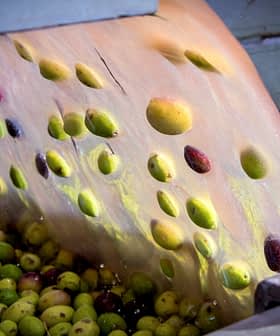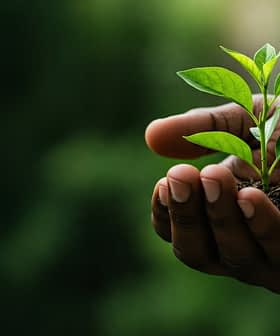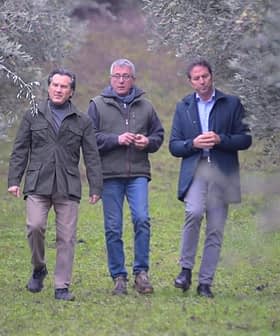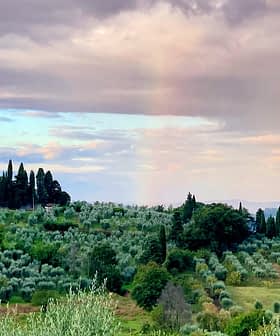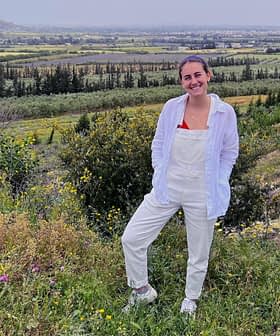Project to Plant Acacia Trees in Tunisia Combats Desertification
The brainchild of a 29-year-old women social entrepreneur, a project in Tunisia plants acacia trees to address water scarcity and desertification.
Acacias For All, a social enterprise project founded by Sarah Toumi in Tunisia, aims to combat water scarcity and desertification by introducing acacia trees as a sustainable alternative to traditional crops. The project has already planted over 50,000 acacia trees and aims to reach one million by 2018, with the goal of expanding to other North African countries.
A social enterprise project to plant acacia trees in Tunisia addresses water scarcity and desertification caused by climate change in Tunisia.
Acacias For All was launched in 2012 by Sarah Toumi, a 29-year-old Tunisian social entrepreneur, with the objective to not only tackle desertification but also support local agricultural workers.
The acacia tree is being introduced to farming communities as an alternative to olive and almond crops which do not thrive when irrigated with the salty ground water found here.
Rainfall has been scarce in Tunisia in recent years and conventional farming methods tend to cause soil depletion, which adds further stress to the local agricultural sector.
The extremely hardy acacia plants can be irrigated with water containing up to eight grams of salt per liter, and adapt well to desert conditions by drawing water from up to 200 feet under the ground. The plant also protects other crops by creating a barrier from the wind and sand, and improves soil quality thanks to its nitrogen-fixing properties which help to revive the soil.
Toumi first launched the project in the village of Bir-Salah, near El Hencha in the region of Sfax where she set up a demonstration center and showed local farmers how acacia trees could be planted as a sustainable agriculture practice.
“I wanted to address the lack of access to the necessary resources for local farmers to adapt to climate change and give them the scientific and technical know-how to adapt to the situation and market their products,” Toumi explained on Néoplanète web radio. “Not only do they have a positive impact on the environment, they also increase their income.”
She found that women working in the agricultural sector were more receptive to this innovative idea and understood the benefits of planting acacia and how its cultivation could be a new source of income. The women are organized into cooperatives so that the farming cycle can be better managed.
The project soon extended to 14 other regions where local “ambassadors” have replicated the model. Today over 50,000 acacia trees have been planted so far, but the goal is to have one million trees by 2018, and to take the project to other countries of North Africa.
Also called moringa or the drumstick tree, the acacia plant is not native to Tunisia, but probably originated in the Indian subcontinent. India has an annual production of over one million tons of acacia. The plant also grows in Central America, the Carribbean and the northern countries of South America.
The plant’s byproducts are gum arabic, or acacia gum which is the hardened sap of the tree. This is used in the food industry as a stabilizer and as a binder in watercolor paints and ceramic glazes, among other uses.
Moringa oil is also extracted from the seeds of the plant and is used in food and medicinal products. The leaves of the plant are reduced into a vitamin and mineral-rich powder which is used for nutritional supplements, herbal tea, or is mixed with honey.
In 2013, Acacias for All was chosen by the French government as one of the 100 innovations in Africa shaping the future of sustainable development, and in 2016 Toumi was identified by Forbes as one of 30 social entrepreneurs under 30 making change around the world.


